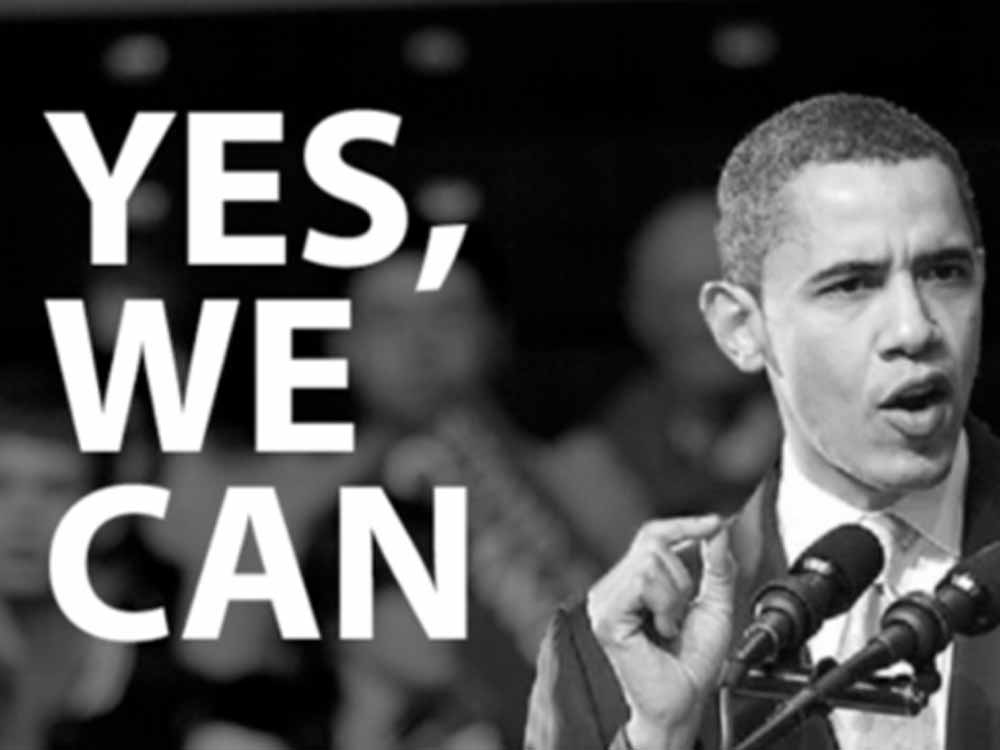Yes We Can 2008: A Slogan that Defined a Movement
In 2008, “Yes We Can” emerged as a powerful and iconic slogan that encapsulated the spirit of hope, unity, and change during Barack Obama’s historic presidential campaign. This rallying cry became synonymous with a movement that transcended political boundaries, leaving an indelible mark on American politics and inspiring millions.
The Origin and Significance of “Yes We Can”
“Yes We Can” originated from Barack Obama’s speech on January 8, 2008, following the New Hampshire Democratic primary. Facing a crucial moment in his campaign, Obama used the phrase to inspire confidence and convey the idea that, collectively, the American people could overcome challenges and bring about transformative change. The simplicity and inclusivity of the slogan resonated deeply with supporters and became a central theme throughout the campaign.
The Role of “Yes We Can” in the 2008 Campaign
The “Yes We Can” slogan became a rallying point for Obama’s supporters, encapsulating the aspirational message of his candidacy. The phrase embodied the belief in a collective effort to address pressing issues such as healthcare, the economy, and foreign policy. From campaign rallies to grassroots movements, “Yes We Can” became a unifying call to action, fostering a sense of empowerment and civic engagement.
Cultural Impact and Celebrity Endorsement
The cultural impact of “Yes We Can” extended beyond the political sphere. The slogan inspired artists, musicians, and celebrities to create a powerful music video titled “Yes We Can” that featured prominent figures reciting Obama’s speeches. This viral video further amplified the message, reaching a global audience and contributing to the cultural phenomenon surrounding the 2008 campaign.
Legacy and Continued Relevance
The legacy of “Yes We Can” persisted beyond the 2008 election. While it initially symbolized Barack Obama’s historic presidential victory, the slogan continued to resonate as a symbol of hope, optimism, and the potential for collective action. The principles embedded in “Yes We Can” influenced subsequent political movements and underscored the enduring belief in the power of unity and shared aspirations.
In conclusion, “Yes We Can” in 2008 was more than a campaign slogan; it became a symbol of a movement that inspired a nation. From its humble origin in a pivotal speech to its widespread adoption by supporters and its cultural impact, “Yes We Can” encapsulated the transformative spirit of the 2008 election, leaving an enduring legacy that transcended politics and spoke to the universal human desire for positive change and collective empowerment.











